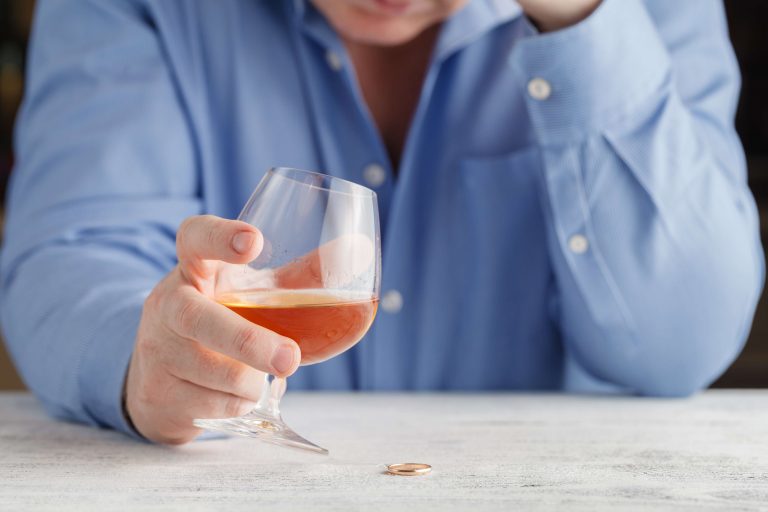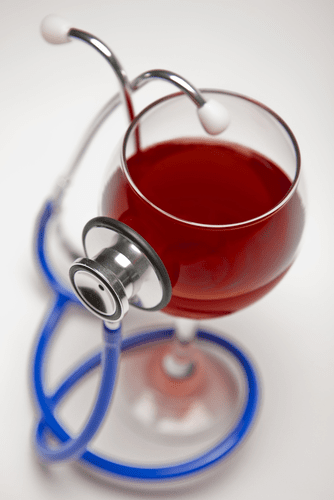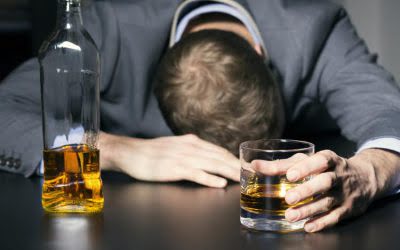Contents
- Myth #1: Alcohol Destroys the COVID-19 Virus
- Find out if your insurance covers addiction treatment in minutes. We accept most insurance!
- Drinking alcohol does not prevent or treat coronavirus infection and may impair immune function
- Alcohol and COVID-19: Facts and FAQs
- Can You Drink Alcohol With Covid?
Many people feel isolated or lonely when they are not able to connect with others. Isolation and solitude can aggravate someone and make them more likely to consume alcohol. Not being able to reach out to a support group can make it challenging for people to manage their emotions. Given the difficult situation that we are all in, this can lead to great emotional stress. Being unable to socially connect can create a number of stressors.
This unprecedented, global turn of events has led to many drastic changes in society. Among these changes include, for many people, an increased likelihood for consuming substances like alcohol. Last month, WHO Director-General Tedros Adhanom Ghebreyesus offered advice on how to stay physically and mentally healthy under lockdown measures. Drinking alcohol can increase the risk of catching Covid-19 and governments around the world should limit access during coronavirus lockdowns, the World Health Organization said late Tuesday.
Um, we’re also concerned about the individuals who may find themselves at home, um, captured by a story. For example, uh, that was in the Bloomberg school of public health at Johns Hopkins by Jay, Kevin Austin. Some that started out with the title whole, the Coran teenies a very catchy lead in, you know, for a story when people are at home and have more time and are wondering, um, how am I going to get through this? And they don’t have a, an identified alcohol use disorder. We’re not talking about, um, some of what may have been portrayed in the media, um, as the down and out. The present study sought to investigate the stability of recovery from AUD during the COVID-19 pandemic and to identify correlates of mild relapse.
The COVID-19 pandemic has also likely affected recovery from alcohol use disorders . Early commentaries warned that people in recovery may be at heightened risk of relapse and that necessary recovery services may be less available (Da et al., 2020, Dunlop et al., 2020, Melamed et al., 2020). Specifically, for those in recovery, the COVID-19 pandemic may create additional complications due to loss of structure in daily routines, decreased activities to keep preoccupied, and reduced in-person social support. Regarding specialized services, an increase in demand for AUD treatment may coincide with decreased capacity to deliver said services as behavioral health resources could be reallocated to meet COVID-19 medical care needs . Among other results, we found that mild relapse was an infrequent event.

And they make up about 30% of the drinkers in the United States and trust. We see that with people that we work with at the bedside in the hospital who may be risky drinkers is a term that has used. I do want to emphasize, how to heal your liver after alcoholism uh, from some of the online versus there’s a fact check that needs to go out that, you know, to minimize the Corona virus risk. Uh, we’re emphasizing use alcohol for sanitizing and cleaning, not for drinking.
This is the fundamental idea we teach alcoholics, that they are not only powerless over their addiction, but they are powerless over everything. This is not to say that a person should abandon all planning and efforts to meet his or her goals. Instead, it is the realization that reasonable people must plan and make the effort to achieve their goals, but ultimately, they are powerless over the outcome. As more and more bars and restaurants continue to reopen across the country, one of the peripheral conversations has been centered around the relationship between drinking and COVID-19.
Myth #1: Alcohol Destroys the COVID-19 Virus
These measures have been effective in keeping people at home. For example, 39% of workers in OECD countries shifted to teleworking, and millions of children switched to online learning and home schooling. Leisure time was also affected with, for example, a sharp increase in time spent online.
- Um, people can go on to their browser and Google AA or in a, there’s a lot of electronic meetings available.
- Part of the response must be to help people deal with the problems they have with alcohol consumption.
- So that’s pretty important when we’re looking at a coven virus that is wreaking havoc when it’s severe in the lungs of individuals impacted by this.
- When people become addicted to alcohol, they may develop withdrawal symptoms of anxiety which can worsen stressful experiences.
- Thanks for listening to this episode of the best health podcast brought to you by wake forest Baptist health.
So within the 30% of risky drinkers, again about seven to 10% have a serious alcohol use disorder and heavier drinking. But the other approximately 20% are, um, overdoing it every now and then. And this may happen not necessarily several times a month. So there is not one specific way to define that, but that is a guy for helping people look at when they’re overdoing it and what that looks like. Equivalent large majorities of women and men reported that the COVID-19 pandemic had not affected their recovery at all (88.9% and 88.8%, respectively).
In the case of people who have lost businesses, this stress can be quite serious. COVID-19 has caused an unprecedented shutdown of small businesses. Many people have also had their work hours reduced, either in an attempt to reduce physical contact between staff members or because businesses need to conserve money. In an effort to expedite her recovery, the 49-year-old turned to a functional medicine practitioner, who recommended several changes in her diet and lifestyle.
Find out if your insurance covers addiction treatment in minutes. We accept most insurance!
It is possible that distinct aspects of recovery capital (e.g., internal attitudes or behaviors; interpersonal relationships) are more or less salient. People who consume red wine between one to more than five glasses a week had a 10 to 17% lower risk in contracting COVID-19, but beer drinkers had a heightened risk, according to a recent study. Just because they’re that fifth area, the spiritual connection is so vital to everything and I just wanted to sort of roll it in really quick. But like faith activities, there are virtual church services doing meditation or journaling, daily gratitudes, a service for others ways that we can help others virtually and physically even at this.
There is little research on the impact alcohol has on COVID-19 recovery. However, common sense would suggest you should not drink while you have an active infection. You want your body to focus all of its energy on the recovery and healing process. So, if you find yourself drawn to quarantine drinking, how much is too much?

If you’re like any of the 40 million-plus people who are dealing with substance use disorder, the last thing you want to do is admit it. You don’t have to be ashamed or afraid to ask for help. Lake Worth Full scope of services, including medical detox as well as outpatient and residential rehab in Lake Worth. Our program integrates can alcoholics drink in moderation numerous treatment modalities from yoga and meditation to individual and group services. In fact, the opposite is true – alcohol tends to reduce immunity, which can put you at a greater risk of contracting viruses of all types. There have been a number of misconstrued facts regarding alcohol consumption and COVID-19.
Drinking alcohol does not prevent or treat coronavirus infection and may impair immune function
This makes it easier to pursue a change, and stay on track, in the post-COVID world. Research is still in progress on how healthy it is to have a glass of wine or beer after getting your vaccine shot. Part of the challenge is that researchers did not look at alcohol consumption when the vaccine was being tested. This also means that the Centers for Disease Control has not issued definitive guidelines. So while the current pandemic may prove problematic for recovering addicts, it may also give them the opportunity to grow and thrive, but they can’t do it alone.
With higher and higher rates of infection documented in bars throughout the country, we’re seeing an increasingly clear correlation between alcohol and the coronavirus. Heavy drinking also creates high-risk scenarios that can divert the efforts of doctors and hospital personnel from effectively treating increased caseloads. By the time you’ve finished this article you’ll have a better understanding of how COVID relates to alcohol. We will also provide some tips and information to ensure that you don’t run an increased risk of health problems or substance abuse.

Among individuals in the 11 countries, 43% increased their drinking frequency, compared to a quarter of adults who decreased their drinking. The probability of binge drinking – drinking more than 80% of a bottle of wine or 1.5 litres of beer per drinking occasion – did not change for nearly half of the population. About 29% of the respondents reported alcohol and drug abuse counseling binge drinking less frequently, though 23% said they were binge drinking more frequently. They’re constantly roaming around searching for this point. Dead cells and foreign particles that don’t belong in the body and they are compromised. We’ve seen, uh, neutrophils are another key fighter in our infection, um, especially in the lungs.
Alcohol and COVID-19: Facts and FAQs
The number of people referred to Medcalf’s services has jumped 65 percent from pre-pandemic levels – the program saw 560 patients in 2019, when it was first implemented. The beginning of the coronavirus pandemic was a stressful time for Americans. With people stuck at home and unsure of the future, many turned to alcohol to cope. Wemm S.E., Larkin C., Hermes G., Tennen H., Sinha R. A day-by-day prospective analysis of stress, craving and risk of next day alcohol intake during alcohol use disorder treatment.
You know me, I love a drink, I love the ritual of it, and I love to sit down and have one and chat. I love the taste of alcohol, like, I love whiskey and wine and, whatever, vodka. I’ll take it all,” she said while chatting with Chelsea Handler on her podcast ‘Dear Chelsea’.
Is it safe to drink wine while nursing?
We know taping right now and marijuana smoking any kind of inhalation types of drug use, um, puts the lungs further at risk too. But even 200 years ago, the first surgeon general, Dr. Benjamin Rush wrote about what he saw as problems with alcohol consumption and significant complications with pneumonia. The mental area of our human system, which includes brain stimulation, um, the, our social connections with other people, which is a critical part of the way that humans with life and the spiritual connections that we have. You know, that’s where, so those five areas are key and we want to take care of ourselves. But you know, you bring up a good point if, if, if we’re being as healthy as we can be, that’s gonna enable us to help, um, care for others should the need arise or, you know, we’re being, we’re all in this together.
The status of participants were grouped into non-drinker, previous drinker, and current drinker. The study also investigated other forms of alcohol including beer, cider and spirits. Driven Writer with a demonstrated history of working in the hospital & health care industry. Strong past in Applied Improvisation and Improvisation for entertainment. Skilled in Talent Management, Copywriting, Teaching, Curriculum Development, Editing, and Data Management.
This section outlines some of the ways that our current situation can impact people who struggle with alcoholism. Many people have begun to stockpile alcohol during the quarantine. Even those who are not considered alcoholics may find it reasonable to purchase more of their favorite drinks in case the liquor store runs out during the quarantine. The increased availability of alcohol in the home space can make one more likely to drink.
And, uh, one of the things that I wanted to give you was a definition, and this was just from Wikipedia, but as I was thinking about it, just thinking about what stressors actually are. And you know, we think about all the ways we get stressed, but, but I looked it up. The definition seems really apropos because what it said was a stressor is a chemical or biological agent, environmental condition, external stimulus or an event seen as causing stress to an organism. Psychologically speaking, a stressor can be events or environments that individuals might consider demanding challenging or threatening individual safety. And it seemed to me that that was quite appropriate for what we’re looking at today and what I think that we’re all used to being under stress. Um, a lot of research has indicated that just normally 75% of Americans feel that they’re under either moderate to high stress most of the time.